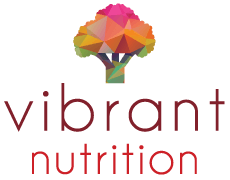January 10th, 2016
Every Registered Dietitian Is a Nutritionist, but Not Every Nutritionist Is a Registered Dietitian
Perhaps when you think of wellness and lifestyle and health, you think of the word “nutrition” instead of “diet or dietitian”….that’s positive in some way!
Mental and physical health is inextricably linked to nutrition….however what is the difference between a dietitian and a nutritionist then? And why would you want to go see a dietitian compared to a nutritionist?
Because…. Every Registered Dietitian Is a Nutritionist, but Not Every Nutritionist Is a Registered Dietitian
Can be confusing…
I am a regulated health professional; however, no one DICTATES my practice. This ensures my education, training, and practice meets and exceeds legal and professional standards for safe, ethical, and quality health care. Public safety is the primary concern. It allows me to continue to practice, study, learn and educate myself and my clients, while working within this safe framework.
I believe that eating whole foods is the foundation of a healthy life. I work with food to nourish and heal; helping mind, body and soul! I believe there is nothing more holistic than creating a path to better health through food. Food is cultural, it is deeply personal and it is transformative.
Bottom Line:
I’m passionate about nutrition
I’m a nutrition expert
I’m a mother
I’m a nerd
All of the above benefit you if you use my services.
For further information read more below.
- Accreditation
- We are registered with a governing body
- We require continuing education and a review of our entire practice every 2 years
- We write a national licensing exam after education to become a registered dietitian. No one who is not a Registered Dietitian can call themselves one; it is a protected regulated health profession. There is no such thing as a regulatory or licensing body for a “nutritionist” in most provinces. The provinces that do protect this title have reserved it for those who are registered dietitians.
- This process takes 4 to 5 years where we are immersed in the scientific theoretical and practical application of nutrition
- Education
- We have a minimum of a Bachelor’s degree specializing in food and nutrition; many have advanced degrees as well. I have an additional Master’s degree in Nutritional Science. It helps me use and translate the science behind the reasons why I tell clients and families
- Experience
- In my case I am a clinical dietitian (4 years of education, 1 year clinical internship, 18 months Masters of Clinical Nutrition Science), meaning I practice l clinical nutrition therapy with families and children. I have been practising for over 11 years. My advanced degree offers me an elite opportunity to teach dietetic interns, physicians and students alike at both the University of Toronto and George Brown College. And it keeps me nerdy…in terms of separating nutrition theory from nutrition facts!
- I am also a mother of two….no experience beats that when it comes to balancing feeding and nourishing kids with real-life work and situational events. As they say: “Life happens while you’re trying to get stuff done!”
- Accountability
- We are legally –responsible for our work! We are evidence-based in practice that is why dietitians are the best resource for nutrition.
- Similar to physicians, lawyers, pharmacists, we have a body that exists to protect the public should there be an issue of ethics or practice…I like the example of, you COULD get someone who is a really convincing speaker to be your lawyer….or you could an ACTUAL lawyer, get a trained expert Canadian Law and the legal system, to help you. Which would you choose?
- Dietitians are accountable to provincial regulatory bodies for their professional conduct and the care they provide. For more information, contact the College of Dietitians of Ontario.
Are you covered?
Registered Dietitians are often covered by many extended health insurers; as they should be/ why would you have coverage for drugs and none for prevention? Of course you are covered, call your provider today!


